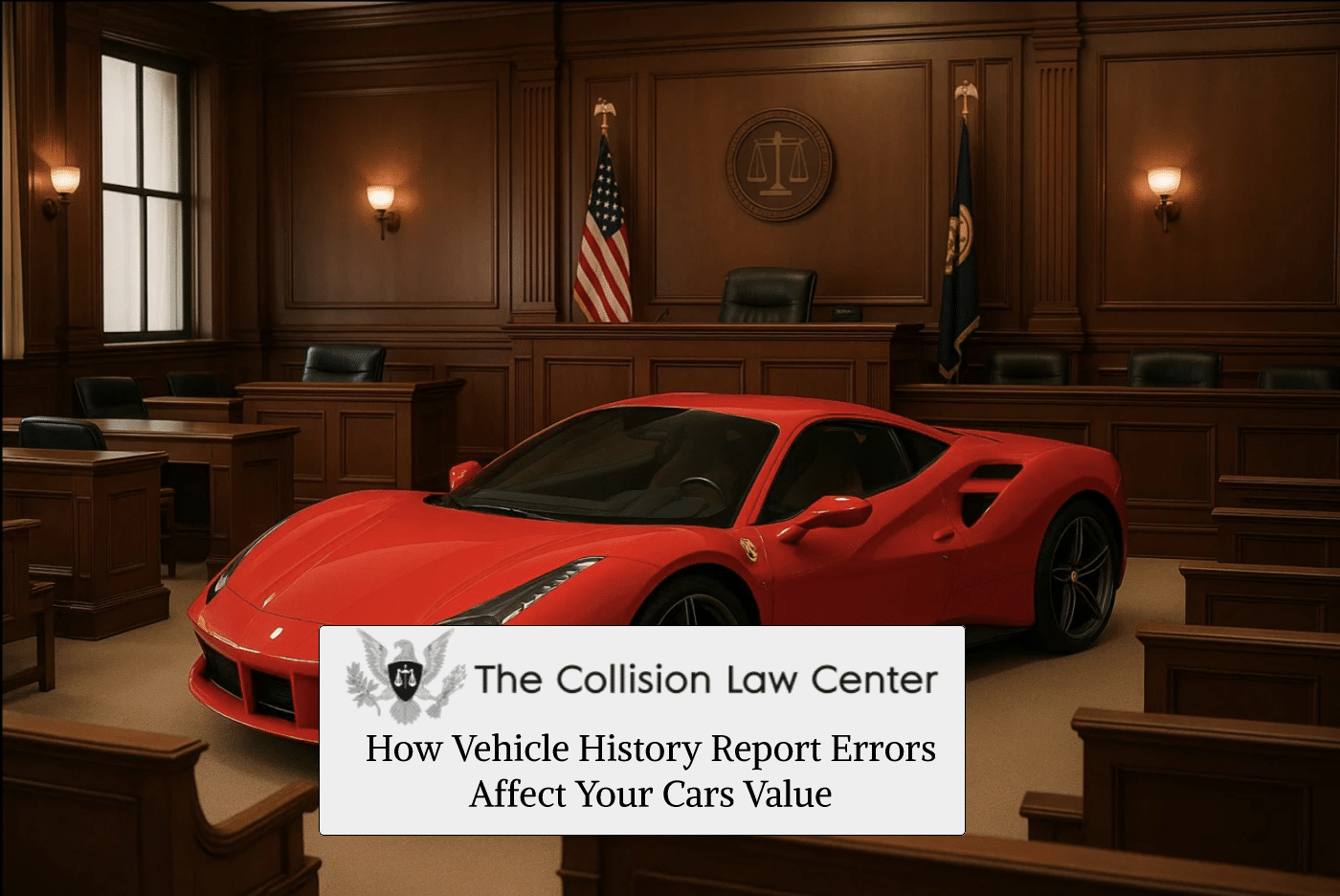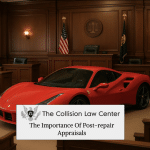This article examines how inaccuracies in a vehicle history report can affect your vehicle’s overall value and why addressing a vehicle history report dispute promptly is crucial. Many car owners experience stress when errors in a vehicle report lead to unjust depreciation of their asset. We understand that owning a vehicle is not only a financial investment but a source of personal pride. When a mistake occurs in the documentation, you deserve a fair process to correct it. In this article, we offer insights on the steps involved in disputing errors in your report, discussing the challenges that can result from misinformation and detailing how legal experts can offer guidance. We approach this issue with empathy, recognizing the frustration that comes with unexpected discrepancies. The discussion covers the origin of errors, their broader consequences, and how the legal system in the Miami-Fort Lauderdale area supports clients in resolving these issues. By exploring these layers, our goal is to equip you with the knowledge needed to confidently face any inaccuracies that compromise your vehicle’s value. Your rights and concerns are our priority, and understanding the vehicle history report dispute process is the first step toward ensuring that every detail of your automotive record is accurate and just.
Background What Does a Vehicle History Report Dispute Entail
A vehicle history report dispute arises when an error on a vehicle report negatively affects a car’s market value. This problem is often caused by mistakes in recording previous accidents, odometer discrepancies, or even documenting repair histories inaccurately. Such errors can be as simple as an incorrectly logged repair procedure or as complex as a misidentified collision in an unrelated claim. For example, a vehicle may show a major accident that never occurred or mileage readings might be recorded erroneously, thereby lowering the vehicle's appraisal value. These inaccuracies require careful investigation and correction. The process involves verifying all details provided by the history report and comparing them with maintenance records, state data, and firsthand accounts of the vehicle's past. Addressing these mistakes early on ensures that potential buyers are not misled by faulty information. When disputing the report, gathering evidence such as repair receipts or independent assessments becomes crucial. This background examination helps car owners understand the basis of their dispute and the corrective measures that may be available through legal channels, ensuring appropriate adjustments are made to reflect the true history of the vehicle.
Why Vehicle History Report Discrepancies Matter in Real Life
Errors in a vehicle history report can have significant real-world consequences. When essential details are misrepresented, potential buyers may become overly cautious or demand a drastic price reduction. This situation can leave a legitimate owner facing undue financial burdens or a prolonged selling process. The impact extends beyond mere numbers; a faulty report undermines trust between the buyer and seller, leading to ongoing disputes over the vehicle's value.
In addition, other involved parties, such as insurers or financing institutions, may base their decisions on these flawed reports. Such reliance can lead to further complications during transactions, inhibiting your ability to secure favorable loan terms or insurance premiums.
- Scenario 1 and consequence 1: A single misreported collision can reduce the resale value considerably, leaving you with an unfair financial loss.
- Scenario 2 and consequence 2: Incorrect mileage records may lead to higher insurance costs, as the risk assessment is impacted.
- Scenario 3 and consequence 3: An unverified service record might cause lenders to hesitate, potentially complicating financing options.
Understanding the Contest Process for Vehicle Report Errors in the Miami Fort Lauderdale Area
- Step 1: Begin by obtaining a complete copy of your vehicle history report and reviewing it for any inaccuracies. This initial analysis is key to pinpointing the source of error.
- Step 2: Collect documentation, such as service records, accident reports, or repair invoices that support the correct history of your vehicle. This evidence plays a crucial role during the dispute process.
- Step 3: Submit a formal vehicle history report dispute to the agency responsible for generating the report. Ensure that you include all gathered information, and follow up with the relevant authorities as needed to confirm resolution.
Effective Strategies for Managing Vehicle Report Disputes Successfully
Common Inquiries About Addressing Vehicle Report Inaccuracies in the Miami Fort Lauderdale Area
How The Collision Law Center Provides Comprehensive Guidance to Clients
The Collision Law Center offers expert assistance to those navigating disputes related to vehicle history reports. With years of experience in handling similar cases, their team specializes in clarifying the nuances of vehicle report inaccuracies and supporting clients throughout every stage of the dispute process. Clients benefit from personalized consultations that help them understand their legal options while ensuring that all evidence is organized and presented accurately. The firm works diligently to negotiate with reporting agencies and insurance companies, making sure that any errors are corrected swiftly. Their commitment to transparent communication and empathetic service provides peace of mind during stressful times. Many clients have found the firm's approach to be both comprehensive and reassuring, as it addresses not only the technical aspects of errors but also the emotional stress attached to a depreciated vehicle value. The Collision Law Center takes pride in its client-centered strategies and its proven track record in reviving the true worth of vehicles affected by inaccurate history reports.
TLDR Key Points on Vehicle Report Disputes
In conclusion, addressing errors in a vehicle history report is essential for preserving your vehicle's full potential value. Mistakes in these reports can inadvertently affect many aspects of your financial planning and future transactions. By understanding and following the proper steps toward a vehicle history report dispute, you enhance your ability to maintain an accurate representation of your asset. With the support of experienced professionals like those at The Collision Law Center and the practical strategies discussed within this article, you are better equipped to navigate challenges and achieve fair outcomes. Remember, persistence and expert advice are key to overcoming inaccuracies and ensuring that your vehicle's history truly reflects its quality and maintenance record.







